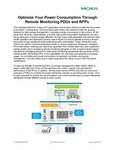Public cloud data backup and recovery provider Clumio has raised $75m in a Series D round of funding.
The round was led by Sutter Hill Ventures, with participation from existing investors Index Ventures and Altimeter Capital, as well as new investor NewView Capital.
This brings Clumio's total fundraising to $261m, the bulk of which came from its Series C round with $135m, conducted in 2019.
“Few markets are as big as backup and recovery," said Mike Speiser of Sutter Hill Ventures. "While many legacy vendors offer products for on-premise data protection, backup and recovery at public cloud scale is a significant technical challenge that Clumio is uniquely positioned to solve."
Clumio was founded in 2017, and while it mostly works with AWS workloads, it began offering its service to Microsoft 365 customers in 2020. Cloud providers have their own native backup systems, such as replication, versioning, and object locking, these don't keep live and backup data in separate domains so if there is a breach, backups can be at risk as well.
The funding comes on the back of a strong 2023 for Clumio, which claimed a four-fold increase in its annual recurring revenue (ARR) last year. Much of this has been put down to major customer deals with the likes of Atlassian, legal and risk management leader LexisNexis, and restaurant chain Cava.
Clumio's ARR is now "well into" the double figures of millions of dollars and has over 100 petabytes of cloud data protected for its customers.
With the use of the public cloud only continuing to grow, and along with regulations including strict data retention stipulations and the need for greater transparency, the opportunity for automated data backups and recovery workflows has equally increased. In addition, the proliferation of generative AI has created a significant flux in the regulatory environment.
Clumio's CIO Poojan Kumar told TechCrunch: "Clumio overcomes this challenge by delivering a default air-gapped, ‘immutable’ platform that keeps enterprises’ data secure from such adversarial incidents.”
“Unlike other vendors, we don’t deploy any heavy file systems or compute in the customer’s account to optimize storage,” Kumar added. “We leverage our serverless data processing engine in AWS to perform all core backup operations. Having said that, we do plan to expand our data plane to other clouds this year.”







